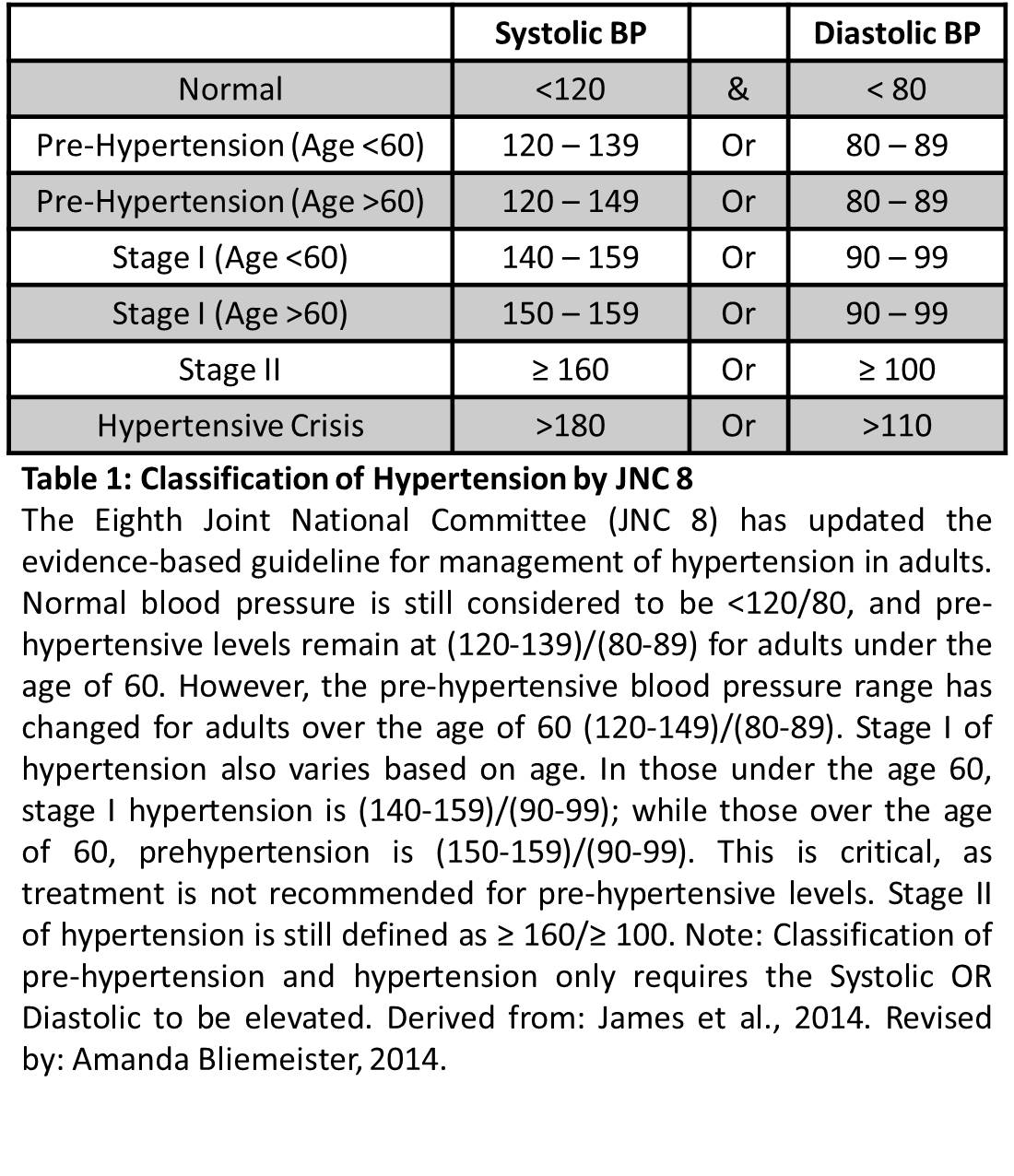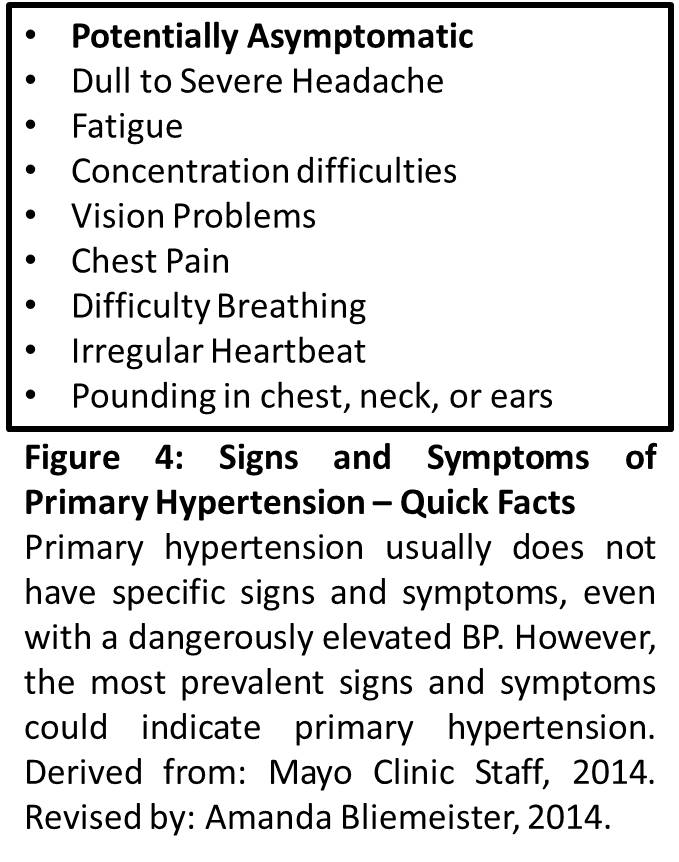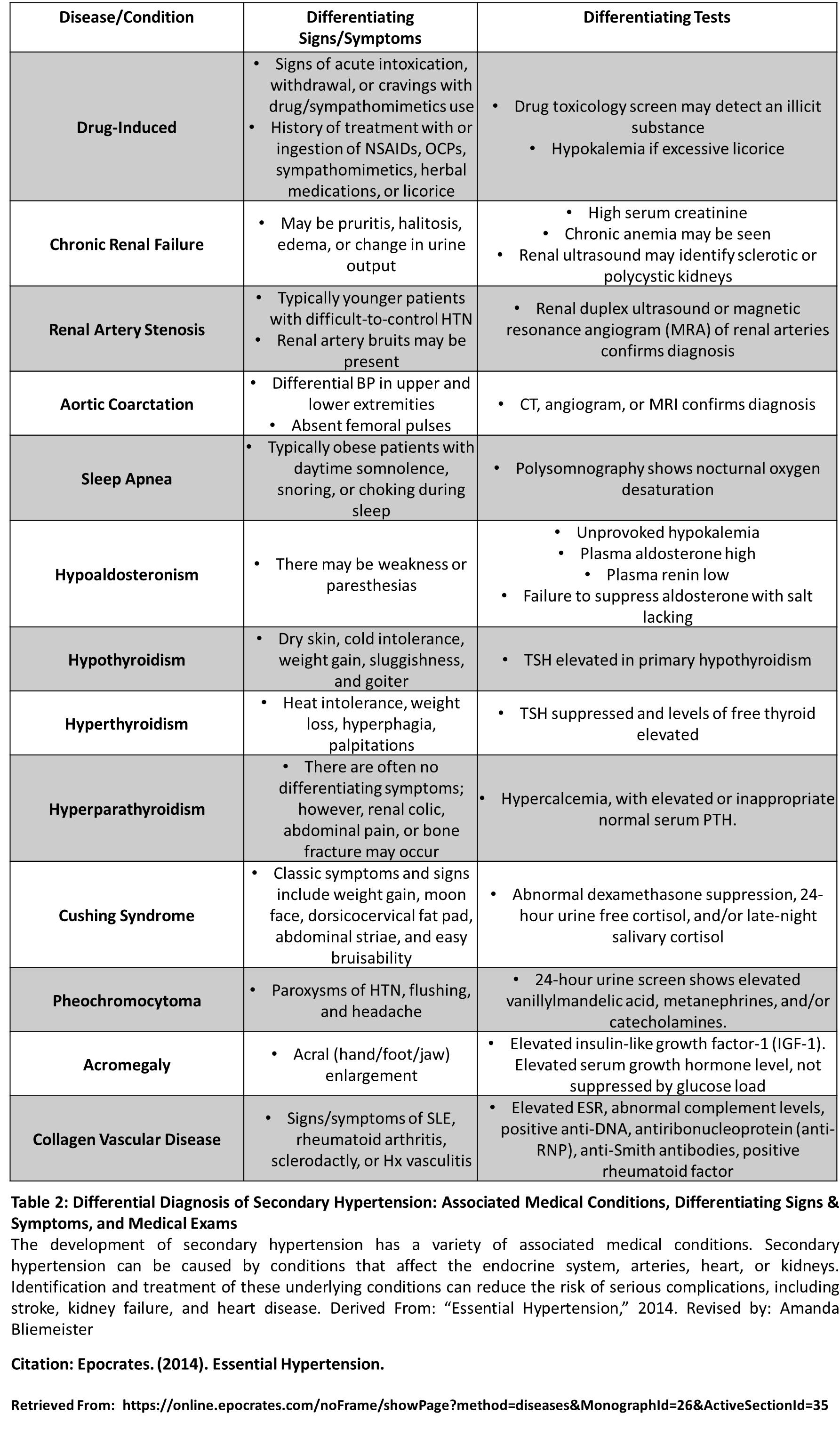Hypertension Differential Diagnosis
One of the most dangerous aspects of hypertension is that it may be asymptomatic. The early stages of hypertension may present with no clinical manifestations other than elevated blood pressure.
Diagnosis of hypertension requires blood pressure measurement on at least two separate occasions. These two measurements are then averaged. Requirements for these measurements include no smoking or caffeine intake within the previous thirty minutes and that the two blood pressure readings must be at least 2 minutes apart (Mayo Clinic, 2014a).
Differential Diagnosis I: Primary Hypertension
Rationale:
Due to patient’s age, BMI, lifestyle, consecutive hypertensive blood pressures, and description of headaches (bilateral temporal throbbing – occurring throughout day with decreased intensity as the day progresses), lower extremity edema, and knowledge that primary hypertension is the most common form of hypertension and mild to moderate primary (essential) hypertension is largely asymptomatic for many years, combined provide rationale for this differential diagnosis.
Differential Diagnosis II: Secondary Hypertension
Rationale:
Patient’s description of headaches, consecutive hypertensive blood pressures, combined with the knowledge that secondary hypertension is the second most common type of hypertension provides rationale for this differential diagnosis. Presentation of secondary hypertension is similar to primary hypertension in that it may be asymptomatic despite a dangerously elevated blood pressure (Mayo Clinic, 2014b).
Differential Diagnosis III: Complicated Hypertension
Rationale:
Patient’s description of headaches, swelling of the lower extremities, consecutive uncontrolled hypertensive blood pressures, combined with the potential for chronic hypertensive damage leading to organ dysfunction, provides rationale for this differential diagnosis. Potential organ damage and/or dysfunction include: heart, kidney, eyes, arteries, brain, bone loss, difficulty sleeping, and sexual dysfunction (Mayo Clinic 2014c).





